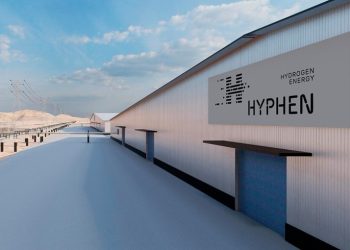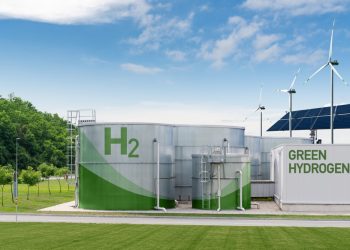
Namibia’s Green Hydrogen Commissioner James Mnyupe says the sector has to date generated employment opportunities for more than 400 individuals and has injected approximately N$170 million into small and medium-sized enterprises (SMEs) for services.
This marks an increase from the approximately 200 jobs recorded in July in Namibia’s Central Valley.
Namibia is currently home to eight active green hydrogen projects (Hyphen, Elof Hansson, HDF Energy, HyIron, Zhero, Cleanergy Solutions, Daures Hydrogen Village, and Hyrail), positioning the country at the forefront of the green hydrogen industry.
“The largest and most significant of these is the Hyphen Hydrogen Energy project, strategically located in the Tsau //Khaeb National Park. These government-backed projects stand as a beacon of Namibia’s commitment to green energy, having already employed over 400 individuals and channelled approximately N$170 million into small and medium-sized enterprises for essential services,” he said.
Giving an update on the ongoing projects, Mnyupe said the Hyphen Hydrogen Energy project has reached several pivotal milestones, including completing pre-FEED (front-end engineering design) engineering and installing 10 meteorological masts crucial for data collection. “The project has attracted global interest, with Memorandums of Understanding (MoUs) signed to supply over 1 million tonnes of green ammonia annually,” he said.
Meanwhile, HyIron is scheduled to receive Namibia’s first green iron kiln in September 2024. The project aims to produce 15,000 tonnes of Direct Reduced Iron (DRI) each year, setting a new standard in green industrialisation.
Other projects include the Cleanergy Solutions Namibia project which inaugurated its refuelling station this year and is on track to begin green hydrogen production by the fourth quarter of 2024, with 80% of the project already completed.
Moreover, the Daures Green Hydrogen Village is nearing completion. This project is expected to start green hydrogen and ammonia production by the fourth quarter of 2024, marking another significant step towards Namibia’s sustainable energy future.
Mnyupe noted that international partnerships are crucial to the success of these projects.
A Joint Communiqué of Intent with Germany has already secured €30 million in grants for pilot projects, underscoring Namibia’s growing global cooperation in green hydrogen.
“Ongoing collaborations with universities and research institutions are critical for driving innovation and ensuring the successful implementation of these initiatives. Local SMEs and consultancies are playing a vital role, ensuring that the solutions developed are tailored to Namibia’s unique conditions,” he said.
Furthermore, international donors including those from the Netherlands, Germany, and the European Union, alongside technical assistance from the World Bank and UNIDO, continue to provide essential support, he said.
“The development of the necessary infrastructure, including solar and wind farms, desalination plants, and electrolysis facilities, is well underway. Plans for storage, distribution networks, and port facilities at Lüderitz and Walvis Bay are in progress, ensuring Namibia is well-prepared for hydrogen exports,” he also highlighted.
The green hydrogen sector is poised to create substantial employment, with Hyphen Hydrogen Energy alone expected to require 15,000 workers during construction and 3,000 permanent employees.
Economic modelling suggests the sector could generate 250,000 jobs by 2040, significantly boosting Namibia’s economic growth. Local procurement is a priority, with a target to source 30% of goods and services locally.







